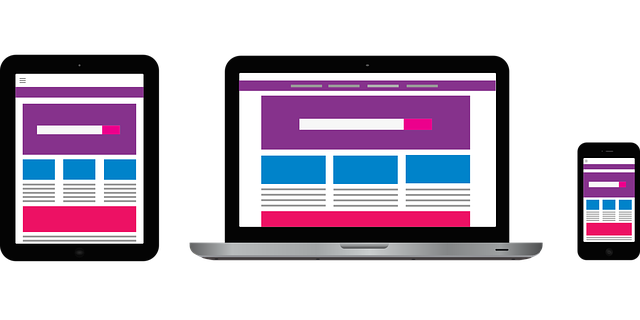Small businesses need professional small business web designers to establish impactful online presences. These experts create visually appealing, functional websites that reflect brand identity, implement SEO strategies for high visibility, and ensure cross-device usability. Reliable designers tailor services to individual needs, target audiences, and marketing goals, driving conversions and growth. Selection involves evaluating portfolios, communication, project management, and ongoing support; ideal designers prioritize brand uniqueness and deliver visually appealing, user-friendly websites. Partnering with specialists fosters small business success in the digital era by enhancing brand identity, attracting leads, and building customer loyalty.
In today’s digital era, a robust online presence is vital for small businesses aiming to thrive. A professionally designed website acts as a storefront in the virtual world, attracting customers and boosting sales. This article guides you through navigating the landscape of small business web designers, from understanding unique needs to selecting reliable experts. Learn how specialized agencies can enhance your online visibility, and gain insights from successful case studies. Discover tips for effective communication to ensure your dream website becomes a reality.
Understanding Your Small Business Web Design Needs

When it comes to setting up an online presence for your small business, finding reliable web designers is key. Your website is often the first point of contact potential customers have with your brand, so it needs to be both visually appealing and functional. Small business web designers understand this critical role and can tailor their services accordingly.
Effective small business web design involves more than just creating an attractive site. It should reflect your brand identity, be optimized for search engines, and offer a seamless user experience across all devices. Reliable designers will take the time to understand your unique business needs, target audience, and marketing goals to craft a website that drives conversions and grows your bottom line.
The Impact of a Professional Website on Small Businesses

A professional website is no longer a luxury for small businesses; it’s an absolute necessity in today’s digital age. In a world where potential customers are just a few clicks away, having an online presence is crucial. Small business web designers play a pivotal role in creating this digital storefront, offering much more than just a static page. They understand that a website is the face of a company and can significantly impact its success or failure in attracting and retaining customers.
A well-designed website enhances the credibility and professionalism of small businesses, instilling trust in potential clients. It provides a platform to showcase products or services, share unique value propositions, and highlight customer testimonials. With effective content and intuitive navigation, websites drive engagement, increase conversions, and foster long-term relationships with customers. For small businesses, this means expanded reach, improved brand awareness, and ultimately, increased profitability.
Identifying Reliable Web Designers: Key Considerations

When looking for reliable small business web designers, several key considerations come into play. Firstly, research is paramount; explore their portfolios and case studies to gauge their design aesthetic and technical prowess. Reputable designers should have a proven track record of creating visually appealing, user-friendly websites that align with the unique needs of small businesses.
Additionally, consider their communication and project management skills. Effective collaboration ensures your vision is understood and translated accurately into the final product. Look for designers who prioritize transparency, offering regular updates and seeking feedback throughout the design process. This approach fosters a collaborative environment, resulting in a website that truly represents your brand.
What to Look for in a Small Business-Friendly Designer

When seeking reliable small business web designers, it’s crucial to consider certain key attributes that align with your unique needs. Firstly, look for designers who specialise in crafting websites tailored for small businesses. This expertise ensures they understand the specific challenges and goals of such enterprises, from cost-effective solutions to marketing-focused design.
Additionally, a good fit is a designer who communicates effectively, offering transparent project management and regular updates. Collaboration tools and clear pricing structures are also essential. Remember, the ideal designer should not only create an attractive website but also provide ongoing support, ensuring your online presence remains robust and relevant in the ever-evolving digital landscape.
Benefits of Collaborating with Specialist Web Design Agencies

Small businesses looking to establish a strong online presence can greatly benefit from collaborating with specialist web design agencies. These agencies bring a wealth of expertise and experience in creating visually appealing, user-friendly websites tailored to specific business needs. With their help, small businesses can avoid the pitfalls of trying to juggle multiple roles—from marketing to coding—and instead focus on what they do best.
Specialist web designers offer more than just aesthetics; they ensure that each website is optimized for search engines, loaded quickly, and compatible across all devices. They also provide ongoing support and maintenance, ensuring the website remains secure, up-to-date, and relevant in a rapidly changing digital landscape. This level of professionalism can significantly enhance a small business’s online visibility, attract more customers, and ultimately drive growth.
Building a Strong Online Presence: Strategies for Small Businesses

In today’s digital era, a strong online presence is crucial for small businesses looking to thrive and reach their target audience. One of the most effective ways to establish this presence is by investing in a professional website designed specifically for their needs. Small business web designers play a vital role here, creating not just a digital storefront but also an engaging, user-friendly experience that reflects the brand’s unique identity. These designers understand the importance of search engine optimization (SEO) strategies, ensuring that small businesses can be easily discovered by potential customers searching online.
Building a robust online presence involves more than just having a website; it’s about creating valuable content, optimizing for mobile users, and integrating social media platforms. Small business web designers can guide their clients through these processes, offering tailored solutions to suit different budgets and goals. By partnering with reliable designers, small businesses can compete effectively in the digital landscape, attracting and converting leads into loyal customers.
Case Studies: Successful Websites for Small Enterprises

When evaluating a web designer, case studies are a powerful tool for understanding their capabilities and success with small businesses. Looking at real-world examples can provide insights into how they’ve tailored designs to specific client needs, optimized websites for search engines, and created user-friendly interfaces.
Successful case studies for small business web designers often showcase projects that highlight the designer’s ability to balance aesthetics with functionality. These sites typically demonstrate effective use of branding, clear navigation, responsive design for various devices, and integration of essential marketing tools like email capture forms or call-to-actions. By examining these factors, potential clients can gauge whether a designer aligns with their brand vision and business objectives.
Tips for Effective Communication with Your Web Designer

When working with a small business web designer, clear and consistent communication is key to achieving your desired website outcome. Start by clearly defining your goals, target audience, and brand message before meeting with your designer. This provides a solid foundation for discussions and ensures everyone aligns on the project’s vision. During the design process, maintain regular check-ins to review progress, provide feedback, and address any concerns promptly.
Effective communication also involves active listening. Pay attention to your designer’s suggestions and insights, as they often bring expertise to the table. Be open to their creative input while also expressing your ideas confidently. This collaborative approach fosters a positive working relationship and leads to a website that not only meets but exceeds your expectations.
